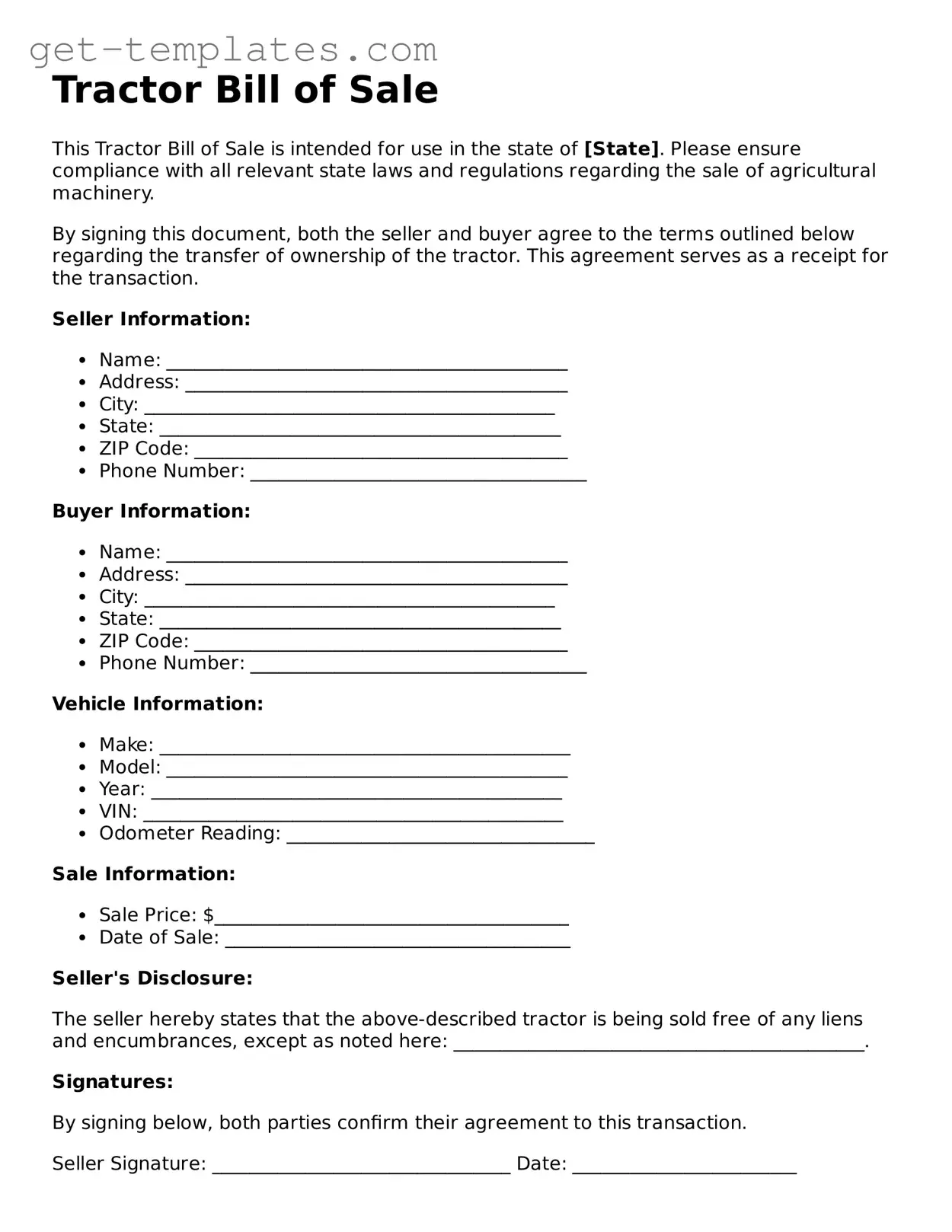Attorney-Approved Tractor Bill of Sale Form
A Tractor Bill of Sale is a legal document that records the transfer of ownership of a tractor from one party to another. This form serves as proof of the transaction and outlines essential details such as the sale price, the condition of the tractor, and the identities of both the buyer and seller. Understanding its importance can help ensure a smooth transfer and protect the rights of both parties involved.
Get Document Online

Attorney-Approved Tractor Bill of Sale Form
Get Document Online
You’re halfway through — finish the form
Finish Tractor Bill of Sale online — edit, save, download made easy.
Get Document Online
or
⇓ PDF Form
